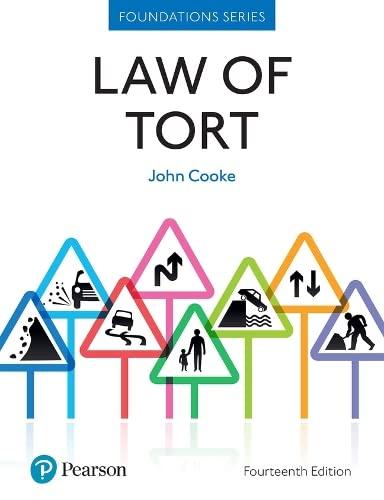Question
Priscilla Howard was 16 when she signed a binding arbitration agreement with her employer, Food, Folks & Fun, Inc. She later sued her former employer
Priscilla Howard was 16 when she signed a binding arbitration agreement with her employer, Food, Folks & Fun, Inc. She later sued her former employer on grounds that she suffered sexual harassment during her employment and that she was constructively discharged because of her complaints about the work environment. The defendant employer filed a motion to compel arbitration regarding Howard's claims. Howard responded by arguing that her filing of the lawsuit amounted to disaffirmance of the contract regarding the arbitration agreement. Additionally, she argues that she did not understand when she signed the arbitration agreement what the ramifications of that agreement would mean and that the defendant never informed her of what arbitration even was. The defendant argued that Howard's disaffirmance was not timely because it came eight months after her eighteenth birthday and had the assistance of counsel. Do you think the binding arbitration agreement was enforceable? Why or why not? [Howard v. Food, Folks & Fun, Inc., 2010 U.S. Dist. LEXIS 133190.]
I need to figure out the court's decision and the rule of law it involves, stating:
A.the principle, standard, or rule which applies in this case.Explain the rule of law.
B.how the rule of law is supported or negated by the facts in the case.
Step by Step Solution
There are 3 Steps involved in it
Step: 1

Get Instant Access to Expert-Tailored Solutions
See step-by-step solutions with expert insights and AI powered tools for academic success
Step: 2

Step: 3

Ace Your Homework with AI
Get the answers you need in no time with our AI-driven, step-by-step assistance
Get Started


